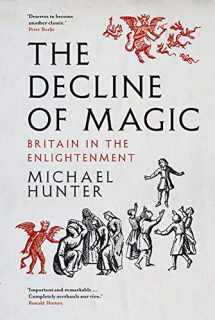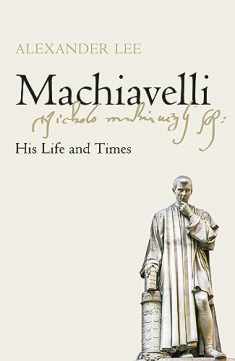
The Decline of Magic: Britain in the Enlightenment
ISBN-13:
9780300243581
ISBN-10:
0300243588
Author:
Michael Hunter
Publication date:
2020
Publisher:
Yale University Press
Format:
Hardcover
256 pages
Category:
Great Britain
,
European History
FREE US shipping
Book details
ISBN-13:
9780300243581
ISBN-10:
0300243588
Author:
Michael Hunter
Publication date:
2020
Publisher:
Yale University Press
Format:
Hardcover
256 pages
Category:
Great Britain
,
European History
Summary
The Decline of Magic: Britain in the Enlightenment (ISBN-13: 9780300243581 and ISBN-10: 0300243588), written by authors
Michael Hunter, was published by Yale University Press in 2020.
With an overall rating of 3.8 stars, it's a notable title among other
Great Britain
(European History) books. You can easily purchase or rent The Decline of Magic: Britain in the Enlightenment (Hardcover) from BooksRun,
along with many other new and used
Great Britain
books
and textbooks.
And, if you're looking to sell your copy, our current buyback offer is $0.74.
Description
A new history which overturns the received wisdom that science displaced magic in Enlightenment Britain
In early modern Britain, belief in prophecies, omens, ghosts, apparitions and fairies was commonplace. Among both educated and ordinary people the absolute existence of a spiritual world was taken for granted. Yet in the eighteenth century such certainties were swept away. Credit for this great change is usually given to science – and in particular to the scientists of the Royal Society. But is this justified?
Michael Hunter argues that those pioneering the change in attitude were not scientists but freethinkers. While some scientists defended the reality of supernatural phenomena, these sceptical humanists drew on ancient authors to mount a critique both of orthodox religion and, by extension, of magic and other forms of superstition. Even if the religious heterodoxy of such men tarnished their reputation and postponed the general acceptance of anti-magical views, slowly change did come about. When it did, this owed less to the testing of magic than to the growth of confidence in a stable world in which magic no longer had a place.
In early modern Britain, belief in prophecies, omens, ghosts, apparitions and fairies was commonplace. Among both educated and ordinary people the absolute existence of a spiritual world was taken for granted. Yet in the eighteenth century such certainties were swept away. Credit for this great change is usually given to science – and in particular to the scientists of the Royal Society. But is this justified?
Michael Hunter argues that those pioneering the change in attitude were not scientists but freethinkers. While some scientists defended the reality of supernatural phenomena, these sceptical humanists drew on ancient authors to mount a critique both of orthodox religion and, by extension, of magic and other forms of superstition. Even if the religious heterodoxy of such men tarnished their reputation and postponed the general acceptance of anti-magical views, slowly change did come about. When it did, this owed less to the testing of magic than to the growth of confidence in a stable world in which magic no longer had a place.


We would LOVE it if you could help us and other readers by reviewing the book
Book review

Congratulations! We have received your book review.
{user}
{createdAt}
by {truncated_author}



